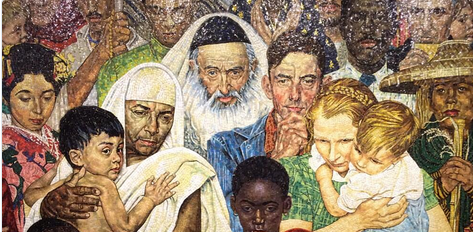You might argue that there are 3 types of shareable information: 1) facts, 2) opinions, and 3) stories. Of the 3, stories are the shortest distance to our hearts. A story is a roadmap to another person's subjective experience -- the gateway to empathy. It's obvious, then, why stories are an essential means of relating for social innovators.
A real story is by definition extremely particular, singular and unique. Its specificity is what sticks.
Earlier this year, CVS Caremark made a landmark decision to ban the sale of cigarettes and tobacco products in its pharmacies, costing the company $2 billion in sales annually. There were without a doubt hundreds of considerations for CVS executives to weigh before arriving at this industry-shaking decision. For one of those executives, Ms. Eileen Howard Boone, the deciding factor was her beloved aunt, Beatrice. Ms. Boone, who spoke last week at the Social Innovation Summit had lost Beatrice to cancer, after watching her struggle throughout her life to quit smoking. I never knew Ms. Boone's aunt, but I'll always associate her with this incredible move for social good by a major corporation.
The Social Innovation Summit convenes a highly sophisticated audience of business and social sector leaders. And yet I couldn't help but notice that the presentations that generated the most excitement were not the most data-rich or the most clever, but those that had the best stories.
Take for example, the story of Katrina Gilbert, the subject of the HBO documentary Paycheck to Paycheck. The word "finance" puts me immediately to asleep--and I know I'm not alone in that. But Katrina talked about access to finance for at least 20 minutes and had me at the edge of my seat. How many of us would have the guts to stand up, at the UN, in front of a gaggle of strangers, and talk about our most humbling struggles... of poverty, single-motherhood, and of being fundamentally disadvantaged? How many of us would be willing to stand up and tell the story of what has always held us back? Katrina shared her personal experience because she genuinely believes that through it, she can bring about real change.
I can guarantee you that almost everyone in that room walked away from Katrina's talk thinking hard about how banks, government, and others can increase access to financial services for the underbanked. Suddenly the word "finance" was waking us up.
Storytelling is in a sense a misnomer. The creative writing 101 cliché cannot be escaped: the best stories show, not tell. The details of the situation convey the story's underlying truths in a way that the most impassioned proclamations never could.
Consider Charles Best, founder of a very successful crowd-funding platform for teachers, Donors Choose. Charles told us about the time he was a young teacher at an under-resourced school in the Bronx. He quickly realized how much of their own money teachers spent for classroom materials, inspiring him to create a platform where they could raise those needed funds. The part of his story that really sticks with me is that he secretly funded the first-ever wave of teacher requests himself so that his colleagues would have faith in his bold and novel idea (and it worked!). If he had simply said, "I was so determined for this platform to succeed" it would have meant nothing. The fact that he used part of his teacher salary to make sure the platform succeeded says it all.
Facts and opinions can unite or divide, depending on where you stand. Stories, real ones, bridge the divide across vague generalities. Ironically, it is the constellation of all our specifics, which is to say our distinctions, that has the power to transcend our differences.
The Specifics of Storytelling for Social Innovation
A story is a roadmap to another person's subjective experience - the gateway to empathy. It's obvious, then, why stories are an essential means of relating for social innovators.
This post was published on the now-closed HuffPost Contributor platform. Contributors control their own work and posted freely to our site. If you need to flag this entry as abusive, send us an email.
